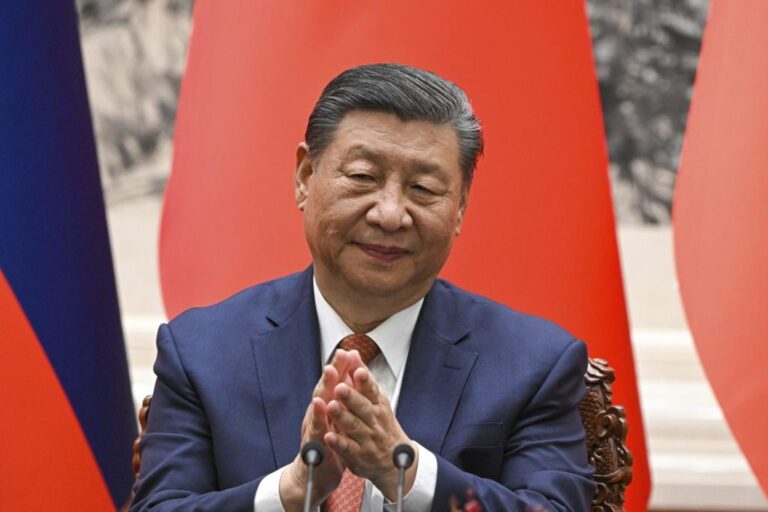Beijing’s endless threats over Taiwan demonstrate how high the stakes are for the United States.
Our political and military leaders must not lose sight of the enormous strategic threat posed by China.
Consider China’s provocative military exercises off the coast of Taiwan on Thursday, an apparent “punishment” (Beijing used the words itself!) for “acts of separatism.”
These separatist acts consisted of speeches by the newly installed Taiwanese leader, Lai Ching-te (and Lai’s election itself).
Lai is a strong supporter of Taiwan’s autonomy and made this statement.
Beijing hit back hard.
Why do we feel such liberty in doing so and in saying, as the government did, that the exercise is a “stern warning against interference and provocation by external powers, namely the United States”?
For the same reason, the Chinese Consulate General in New York also issued a statement on the same day, saying, “If the United States truly cares about cross-strait peace and stability and wishes global security and prosperity, it should uphold the one-China principle and support China’s reunification.”
China sees enormous room for maneuver as President Biden has adopted a fumbling and timid stance in the face of China’s aggressive power projection.
Look at Biden’s April phone call with China’s top leader, Xi Jinping.
The president made his usual remarks about “peace and stability in the Taiwan Strait.”
But Xi implicitly threatened military action if the United States did not act with sufficient caution.
He had reason to feel comfortable doing so: The Biden administration has taken no action since Joe took office to force China to stop its aggressive behavior.
Remember the US spy balloon fiasco of 2023?
The White House devised a plan to allow Chinese military surveillance equipment to fly around the country and peer into sensitive locations, then lie to the public about it (presumably to ensure that Secretary of State Antony Blinken’s planned but postponed visit to Beijing goes smoothly).
China has clearly been keeping a close eye on Biden’s appalling withdrawal from Afghanistan, weakened commitment to Ukraine, and politically motivated abandonment of Israel, America’s closest ally in the Middle East.
Xi Jinping has witnessed first-hand the US’s inadequate responses to Iranian provocations.
How pitiful.
And our weakness has had ugly consequences for Taiwan.
President Xi Jinping clearly understands that it will cost him nothing to cozy up to Russian dictator Vladimir Putin, threaten Taiwan, and move toward domination of the waters off China’s coast and the region itself.
In March, just weeks before President Biden and President Xi Jinping’s phone call, a China Coast Guard vessel intentionally entered Taiwanese waters, a Chinese violation of Taiwan’s territory.
Beijing reportedly sent four spy balloons over Taiwan in January ahead of elections that brought Taiwan’s leader Lai Ming-de to power.
And Xi made that vision crystal clear in his year-end speech in December, promising the “complete unification” of China and Taiwan, after making a similar promise just days earlier in a speech marking the 130th anniversary of Mao’s birth.
The trajectory here is clear and should sound alarm bells in the White House, the Pentagon and all other centers of American power.
Is anyone listening?
Indeed, China’s claim that “unification” through the conquest of Taiwan will make the world a safer mirrors Putin’s nasty plans for Ukraine.
Biden has already failed that test, and we hope he will find the determination and courage to pass it this time.
I’m not holding my breath though.

